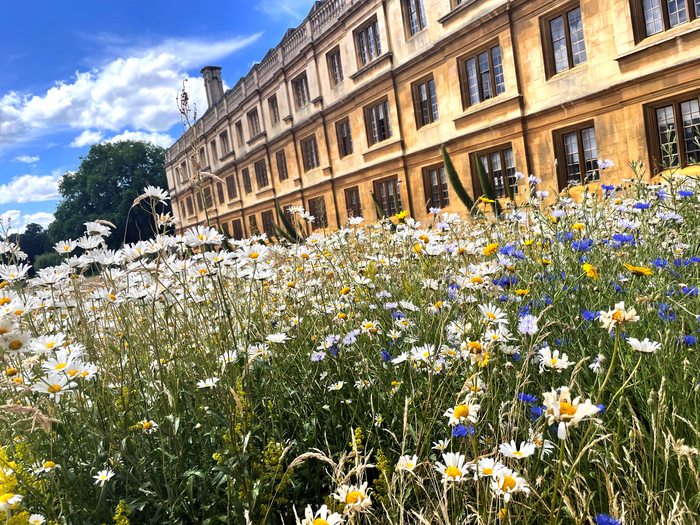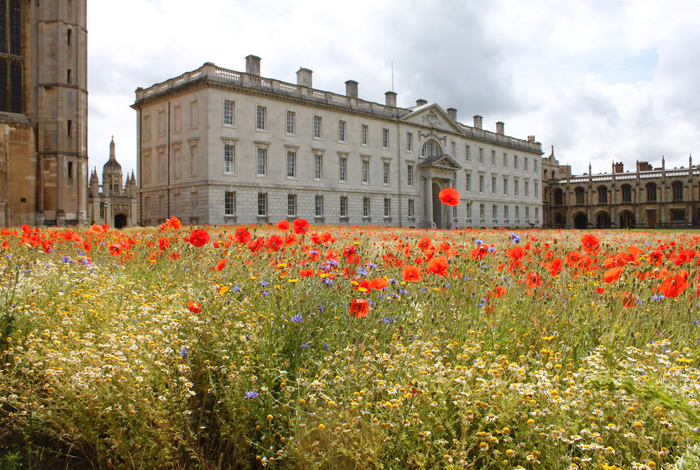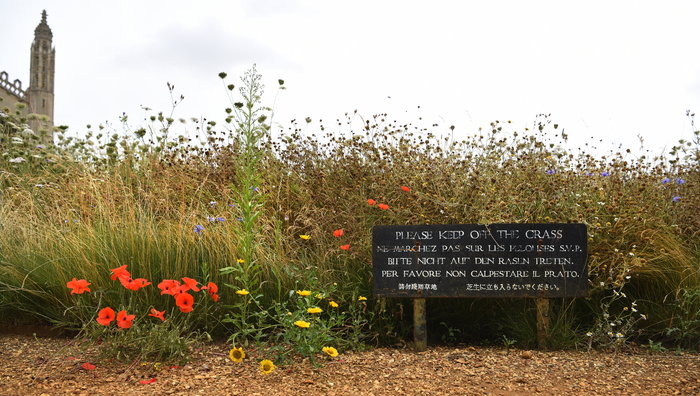Cambridge wildflower meadow boosts biodiversity, says new study
A new Ecological Solutions and Evidence study demonstrates the benefits of planting a wildflower meadow in the historic grounds of King’s College, Cambridge to local biodiversity and climate change mitigation.

The creation of a wildflower meadow in King’s College, Cambridge has made a significant positive impact to the wildlife in the area, whilst simultaneously reducing the greenhouse gas emissions associated with the upkeep of the grounds. The study, led by Dr Cicely Marshall, utilised biodiversity surveys conducted over three years to compare the species richness, abundance and composition supported by the meadow and adjacent lawn.
Dr Marshall and her colleagues found that despite its small size, the meadow supports three times the amount of plant, spider and insect species compared to the lawn, 14 of which are protected species within the UK. The amount of land-based invertebrates was found to be 25 times higher in the meadow in contrast to the lawn. The amount of bat activity was also three times greater than that of the lawn.

Alongside looking at the benefits to biodiversity, the researchers also modelled the impact of the meadow on climate change mitigation. By assessing the changes in reflectivity, soil carbon sequestration, and emissions associated with its maintenance, it was discovered that the reduced maintenance and fertilisation associated with the meadow was found to save an estimated 1.36 tonnes of greenhouse gases per hectare per year when compared with the grass lawn. The meadow is also more likely to tolerate intense drought.
The study also investigated public perception towards the new meadow. Ultimately, the Cambridge community is overwhelmingly in favour of increased meadow planting, with only 1.4% of people preferring to have entirely lawn. However, participants expressed their desire to keep meadow planting in conjunction with maintaining recreational green spaces.

Dr Marshall commented “There’s no doubt that the meadow’s introduction has been a phenomenal success. It has benefitted the biodiversity within the College and captured the imagination of people across the city.”
King’s College Provost Professor Michael Proctor added “The wildflower meadow inspires us to think more about how we look after and enhance our biodiversity. We hope its presence in this iconic setting will motivate others to think about sustainability and to consider planting their own meadows elsewhere.”
News article developed from a King’s College, Cambridge press release.
Marshall, C. A. M. et al, Urban wildflower meadow planting for biodiversity, climate and society: an evaluation at King’s College, Cambridge, Ecological Solutions and Evidence, May 2023. DOI: 10.1002/2688-8319.12243
Like what we stand for?
Support our mission and help develop the next generation of ecologists by donating to the British Ecological Society.